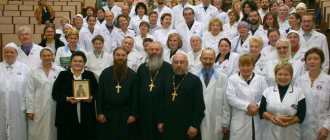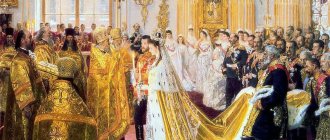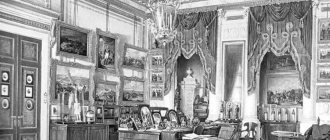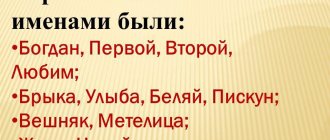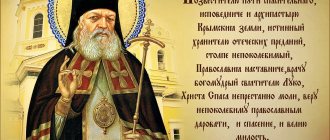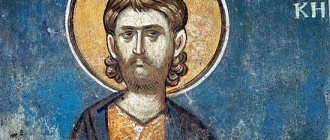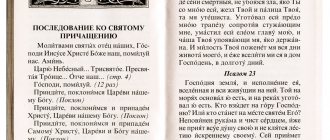In 1908, Evgeniy Sergeevich Botkin was appointed physician of the highest court. “He was infinitely kind. One could say that he came into the world for the sake of people and in order to sacrifice himself,” this is how his relatives remembered him.
The invitation to the position of court doctor occurred after Tsarina Alexandra Feodorovna read the book “Light and Shadows of the Russo-Japanese War,” which consisted of letters from Dr. Botkin. At that time, in the active army, he held the position of Chief Medical Officer.
Red Cross in Harbin
Red Cross and science
Evgeny Botkin began his medical career in 1890 at the Mariinsky Hospital for the Poor, and later began working for the Russian Red Cross Society . At first he worked as an ordinary doctor, and then took the position of head physician of the sister community in the name of St. George in the capital. The peculiarity of this hospital was that it provided assistance to people from the poorest segments of the population, and among the employees, on the contrary, there were some representatives of the upper class who worked as nurses.
E.S. Botkin
All the clinic staff were united by the idea of serving their neighbors, which corresponded to the Christian aspirations of Evgeniy Sergeevich himself. Even before starting work, he began to engage in scientific work in the field of immunology, defended his dissertation in 1893, completed a two-year internship in Germany and became a private assistant professor.
Service
After the academy, Eugene, who did not want to use the name of his world-famous father, in January 1890 got a job at the St. Petersburg Mariinsky Hospital for the Poor.
An intern doctor, who at the end of the year went to Germany at his own expense for scientific purposes, examined patients when they were admitted to the hospital, determined a preliminary diagnosis and supervised the triage wards where newly arrived patients were kept. Very soon, in connection with his marriage, management appointed a colleague as a supernumerary resident. Two years later, he entered the service of the Court Choir, but soon returned to his native hospital.
View this post on Instagram
A post shared by Anton Galusko (@massage_galusko)
Evgeny Botkin in his youth The
year 1895, which began with receiving the Order of St. Stanislaus, III degree “for excellent and diligent service and special labors,” was marked by a business trip abroad. From there, Botkin came with versatile medical knowledge and excellent preparation for independent medical and scientific work. Before this, Evgeniy Sergeevich, whose official opponent was the “first physiologist of the world” Ivan Pavlov, brilliantly defended his dissertation for the degree of Doctor of Medicine.
In the spring of 1897, the talented doctor became a private assistant professor at the Military Medical Academy, and a couple of years later - the head physician of the St. Petersburg Community of Sisters of Charity of St. George and took up teaching. First of all, the teacher taught students mercy and compassion for the sick:
“Don’t be stingy, learn to give compassion with a generous hand to those who need it. Let us all go with love to a sick person, so that together we can learn how to be useful to him... Treat them [the sick] with all the care that you can, with the sincere cordiality that they so need.”
Family
Born in 1865 in Tsarskoye Selo into the family of doctor Sergius Petrovich Botkin, Evgeniy was raised in the Orthodox traditions inherited by his father from his parents.
His grandfather, Pyotr Kononovich, came from the Pskov province. At the end of the 18th century he came to Moscow and started trading. Having quickly become rich selling tea, he became one of the most famous philanthropists in the city. His huge family, even at that time - Peter Botkin had twenty-four children in total - was distinguished by amazing cohesion, cordiality and piety.
Sergei Petrovich graduated from the Medical Institute of the Moscow Imperial University. Soon after he began his medical career, he showed a rare talent as a diagnostician, which later brought him all-Russian fame.
S.P. Botkin
The doctor always combined his work with a very delicate attitude towards the patient. Among Sergei Botkin’s patients were N. Nekrasov and M. Maltykoa-Shchedrin, I. Repin and A. Kuindzhi, D. Mendeleev and A. Koni and other prominent figures of science and culture, as well as members of the imperial family. Doctor Botkin knew Father John of Kronstadt and revered him very much.
His wife was the daughter of an official, Anastasia Aleksandrovna Krylova. Brilliantly educated, she spoke several languages, loved and understood music. The Botkins had seven children, and it seemed that nothing could overshadow their happiness, however, in 1975, when Evgeniy was only ten years old, his mother died suddenly.
A year and a half later, her father’s new wife, Princess Obolenskaya, tried to replace her. Contrary to the prevailing stereotype, the stepmother treated the children tactfully and with love. The family added six more children.
Family S.P. Botkin
Until adolescence, Evgeniy studied at home, comprehending not only the basics of general education subjects, but also studying painting, music, and foreign languages. Possessing excellent knowledge, he was able to immediately enter the fifth grade of the 2nd classical gymnasium, a renowned educational institution in St. Petersburg.
E.S. Botkin - high school student
To continue his education, he chose the Faculty of Physics and Mathematics, but very soon realized the mistake, and a year later he became a student at the Imperial Military Medical Academy . In 1890, Evgeniy got married. His chosen one was the noblewoman Olga Manuilova. The marriage produced a daughter and four sons , the eldest of whom died in infancy.
In the first years, trust and mutual understanding reigned between the spouses, but in 1912 Olga left her husband, being carried away by another man. Evgeniy Sergeevich’s reaction to his wife’s infidelity makes you think: “I am punished for my pride. As before, when we were so happy... and we had such very good mutual relations, she and I, looking around and observing others, self-confidently and complacently said that how good it is with us, that with us there is nothing like what is constantly happens to others, it doesn’t and can’t happen, and then we ended all our exceptional marital happiness with the most banal divorce.”
E.S. Botkin with children
This loss was not the only one - two years later one of the sons died on the fronts of the First World War.
“There were few believers among us...”
Evgeniy Sergeevich with his wife and children.
Photo: https://opvrk.ru/ In his youth, Botkin was not religious. However, when in 1891 the doctor married 18-year-old Olga Manuilova, the life of the young family began with a loss that turned his soul upside down. “There were few believers among us,” he recalled about the graduates of the medical academy in a letter to a friend, “but the principles professed by everyone were close to Christian. If faith is added to the actions of a doctor, then this is due to the special mercy of God towards him. I turned out to be one of these lucky ones - through a difficult ordeal, the loss of my first-born, six-month-old son Seryozha.
Later, to explain how a doctor should treat patients, Botkin often used Christian imagery:
“Who should be pampered, it would seem, if not the sick, so childishly helpless and often so childishly sweet? <…> If such a patient trustfully resorts to a doctor and, as a confessor, brings to him all the groans of his soul - not a sick person, but either overly sensitive, or persecuted beyond his strength, or simply driven and forgotten - and the doctor, so that “not to spoil” him, will stop him and, having prescribed treatment, will let him go, won’t he give the hungry a stone instead of bread? The doctor knows that by doing this he is not “pampering” the patient, but is only fulfilling his sacred duty,” he wrote in the book “What does it mean to “pamper” the sick?” in 1903.
Life physician
According to eyewitnesses, constant communication with the royal family did not change Botkin’s character - he still remained attentive and kind. For the Romanovs, Evgeniy Sergeevich was not only a doctor, but also a very close person.
E.S. Botkin and Nicholas II
At the beginning of the First World War, the doctor asked to be sent to the front, but the emperor entrusted him with organizing rear hospitals in the capital.
Nikolai confessed to Pyotr Sergeevich Botkin: “Your brother is more than a friend to me.”
After the abdication of the emperor, Botkin remained close to the royal family , despite the lack of salary, and when they were sent to Tobolsk, he voluntarily went after them, taking with him two younger children. Here he treated not only the family of Nicholas II, but also all the townspeople who sought help.
When transferring the Romanovs to Yekaterinburg, the service personnel were given the right to choose. Cheka employee I. Rodzinsky wrote: “After the transfer to Yekaterinburg, there was an idea to separate everyone from them... But everyone refused. They offered Botkin . He stated that he wanted to share the fate of the family. And he refused . Evgeniy Sergeevich was shot on the night of July 16-17, 1918.
The last letter found in the archive is written in his hand:
“My voluntary imprisonment here is as unlimited in time as my earthly existence is limited. In essence, I died... I died for my children, for my friends, for the cause, I died, but not yet buried or buried alive... it’s all the same, but later they are practically the same... I don’t spoil myself with hopes, I’m not lulled by illusions and I look the unvarnished reality straight in the eye ... I am supported by the conviction that he who endures to the end will be saved... This justifies my last decision, when I did not hesitate to leave my children as orphans in order to fulfill my medical duty to the end, just as Abraham did not hesitate at God’s request to sacrifice his only son to him »
War
In 1904, with the outbreak of the Russo-Japanese War, Botkin volunteered for the front, where he received the post of head of the medical unit of the Russian Red Cross Society in the Manchurian Army.
His responsibilities included the organization of camp hospitals, infirmaries, evacuation points, the purchase of medicines and equipment, and the timely removal of the wounded and sick. But one of the doctor’s very first concerns during the war was to ensure that those in need were visited by a priest to perform the sacraments, require services, and provide spiritual assistance.
Doctor of the royal family Evgeny Botkin / Novo-Tikhvin Convent
Despite his post, Evgeniy Sergeevich participated in the battles (near Wafangou, at Liaoyang, on the Shahe River), was engaged in dressing the wounded and personally evacuated them. The doctor recorded his observations in a diary and reported in detail about everything he saw in letters to his wife, which, already in peacetime, were published as a separate work - “The Light and Shadows of the Russo-Japanese War of 1904–1905: From Letters to His Wife.”
In the spring of 1905, the doctor, while still in the active army, was awarded the title of honorary physician of the imperial court, and in the fall he returned to St. Petersburg, where he again began teaching. On Easter 1908, Emperor Nicholas II signed a decree appointing his son Sergei Botkin as his personal physician, as Alexandra Feodorovna wanted after reading the biographical book of the veteran, awarded with officer military orders.
Memory
In 2009, the General Prosecutor's Office of the Russian Federation rehabilitated Evgeny Sergeevich Botkin, as well as members of the family of Emperor Nicholas II.
His veneration as a saint began in 1981, when he was canonized by the Russian Orthodox Church Outside of Russia. In 2016, the Council of Bishops of the Russian Orthodox Church decided to canonize Evgeny Botkin as a saint as a passion-bearer and righteous doctor. An akathist (author - E. Khrapovitsky) and prayers were compiled for him.
Prayer
Oh, all-glorious passion-bearer, praiseworthy servant of Christ, champion of the Orthodox Church, new martyr and healer Saint Eugene! On bended knee we pray to you: look upon us sinners who have come running to your intercession, hear this little prayer of ours and with your warm intercession implore the All-Merciful God, to whom you now stand with the Angels and all the saints, may he preserve us in the unity of the Orthodox Church and establish us in our hearts our living spirit of right faith and piety, and will deliver us from all temptation and the deception of demons. According to your great love, with which you have loved your neighbor, ask the all-generous God for your Fatherland (and ours as well) for peace and prosperity; to all of us, the unworthy, who diligently resort to you, a godly and serene life and a good Christian death, a participant in the mysteries of God. Oh, our holy intercessor, do not leave us, weak and helpless, we pray for us to our Lord and Savior Jesus Christ, that He, our All-Bounteous and Most Merciful Lord, may grant us everything that is useful and necessary for temporal and eternal benefit; may he not reward us according to our deeds, but out of his indescribable love for mankind may he forgive us our sins and transgressions, may he deliver us from all need and sorrow, sorrow and illness; May he bestow upon us good intentions and the strength to struggle to correct our lives, and in the future may he grant us the opportunity to enter the Kingdom of Heaven and glorify with you the All-Holy Name of the Father and the Son and the Holy Spirit forever and ever. Amen.
Biography
On February 3, 2016, the Russian Orthodox Church decided to canonize the doctor Yevgeny Botkin, who was executed in 1918 along with the imperial family in Yekaterinburg. The days of remembrance of the passion-bearer in the Orthodox calendar are February 7 and July 17 according to the new style. At home, the canonization of physician Nicholas II, who made a significant contribution to medicine, was canonized three decades after it happened abroad.
Childhood and youth
In the family of the famous reformer of Russian medicine, Sergei Petrovich Botkin and his wife Anastasia Alexandrovna Krylova, on May 27 (June 8, old style), 1865, a fourth child was born, who was named Evgeniy. The boy received his primary education and a decent upbringing at home, and later continued his studies at the gymnasium.
Evgeny Botkin in his youth
In 1882, the young man successfully passed the exams and became a student at the Faculty of Physics and Mathematics at St. Petersburg University . After a year of study, Evgeniy realized that his calling was medicine, so he transferred to the junior year of the Military Medical Academy. The future doctor graduated from the educational institution in 1889 with honors.
In young age
Sincere concern for members of the imperial family
Tsarevich Alexei, who suffered from a rare congenital disease - hemophilia (impaired blood clotting), required special medical care. The incurable pathology posed a serious threat to the life of the heir to the throne. Any sudden movements, blows, scratches entailed severe pain and internal hemorrhages.
Exercises and massage were considered the most effective and safe means that could help the young prince from the Romanov dynasty. However, such procedures required maximum caution: inaccurate movement could provoke re-bleeding and pain. Evgeniy Sergeevich also prescribed hot mud baths and orthopedic devices for his patient to relieve pain in the legs.
During Botkin's service at court, the heir periodically experienced extensive hemorrhages and a sharp deterioration in health. All these days the doctor was constantly next to him, refusing sleep and rest. Evgeniy Sergeevich used the best treatment methods and tirelessly prayed for the prince’s health.
Tragic death
After the revolution of 1917 occurred and the arrest of the royal family took place, all servants and assistants of the sovereign were given a choice. They could stay with the emperor or leave him. Many chose to escape the threat of death and chose the latter, but Evgeny Botkin did not abandon his patients. The doctor of the royal family accompanied Nicholas II and his relatives until the hour of his death. At the same time, he parted with his own children, whom he sincerely loved.
Shortly before the brutal massacre, the talented doctor still had the opportunity to save his life. Instead, he chose to be with those to whom he was devoted with all his soul, and share with them the prepared fate.
Dr. Botkin explained his difficult choice with a promise given to the Tsar. Being constantly with the imperial family, he vowed to serve them faithfully as long as the sovereign lived. Being a deeply religious and noble man, he could not break this word.
A terrible tragedy occurred in July 1918. The royal family and everyone who remained with it (except Botkin, 3 more people did not leave the emperor) were brutally shot in Yekaterinburg, in the basement of the Ipatiev House. It is known that Evgeniy Sergeevich did not die immediately. First, Botkin was wounded with two shots in the stomach, and for some time the doctor was alive. Commandant Yurovsky finished him off with a targeted shot in the head.
The remains of the life doctor were never found. Of all Botkin’s personal belongings, only his pince-nez has survived. He was found in a pit where the bodies of the dead were thrown.
Interesting Facts
- In July 1998, the royal family, as well as the faithful servants who remained with them until the end, including the Romanov doctor, were buried in the Peter and Paul Cathedral.
- In 2016, on the territory of Moscow Clinical Hospital No. 57, the first church in Russia was consecrated in honor of the righteous Evgeniy Botkin.
- On the icons, in front of which prayers and akathists are read, the passion-bearer is depicted with a casket with medicines, which indicates the type of his activity, and in a red cloak, testifying to suffering for the commandments of Christ.
- On January 30, 2022, Channel One released the documentary “The Romanov Case. The investigation has established”, where viewers saw original documents that helped the authors reconstruct the picture of the execution of the royal family, as well as photographs and the results of numerous examinations.
- The life medic, standing behind the emperor, having heard the decision of the Urals Council to execute him, said: “That means they won’t take us anywhere.”
Personal life
Evgeny Botkin arranged his personal life at the beginning of 1891, getting married to Olga Manuilova in the Catherine Church of the Imperial Academy of Arts. The wife, who turned out to be seven years younger than the chosen one, was orphaned from early childhood and raised by wealthy relatives. A year later, the happy couple had their first child, Sergei, but, unfortunately, lived only six months.
Evgeny Botkin with his wife and children / Novo-Tikhvin Convent
The death of the baby greatly shocked the man, but the pain of loss led to a rethinking of life and a deep Orthodox faith, which he passed on to his children - Dmitry, Yuri, Gleb and Tatyana. The heirs doted on their father and stayed with him after their parents’ divorce in 1910. At the age of 14, the daughter became the mistress of the house, and then followed her “unappreciated daddy” into exile.
